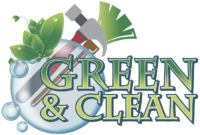Air duct cleaning is an essential part of maintaining indoor air quality and ensuring an efficient HVAC system. Over time, dust, allergens, and contaminants build up in ductwork, reducing airflow and potentially impacting health. Understanding how professional air duct cleaning works can help homeowners make informed decisions about when and why to schedule a cleaning.
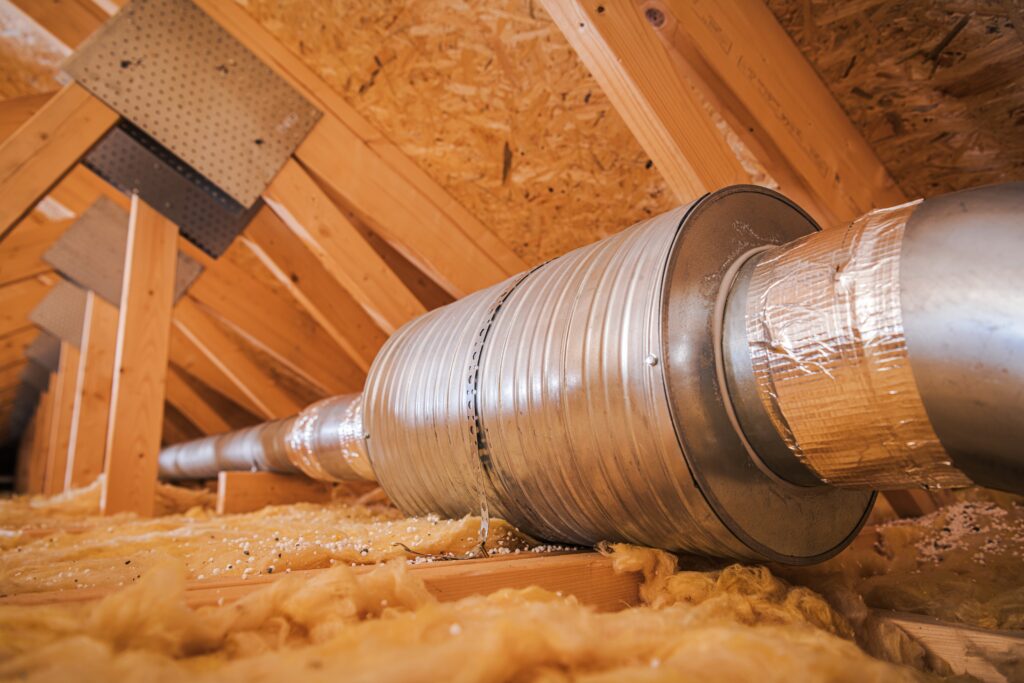
Why Air Duct Cleaning Is Important
Air ducts circulate heated or cooled air throughout a home, and when they become clogged with dust, debris, or mold, indoor air quality can suffer. Dirty ducts can contribute to:
- Increased allergy or asthma symptoms due to airborne allergens.
- Musty or stale odors coming from air vents.
- Reduced HVAC efficiency, leading to higher energy costs.
- Increased dust buildup on furniture and surfaces.
Regular air duct cleaning removes contaminants and ensures cleaner air circulation, benefiting both health and system performance.
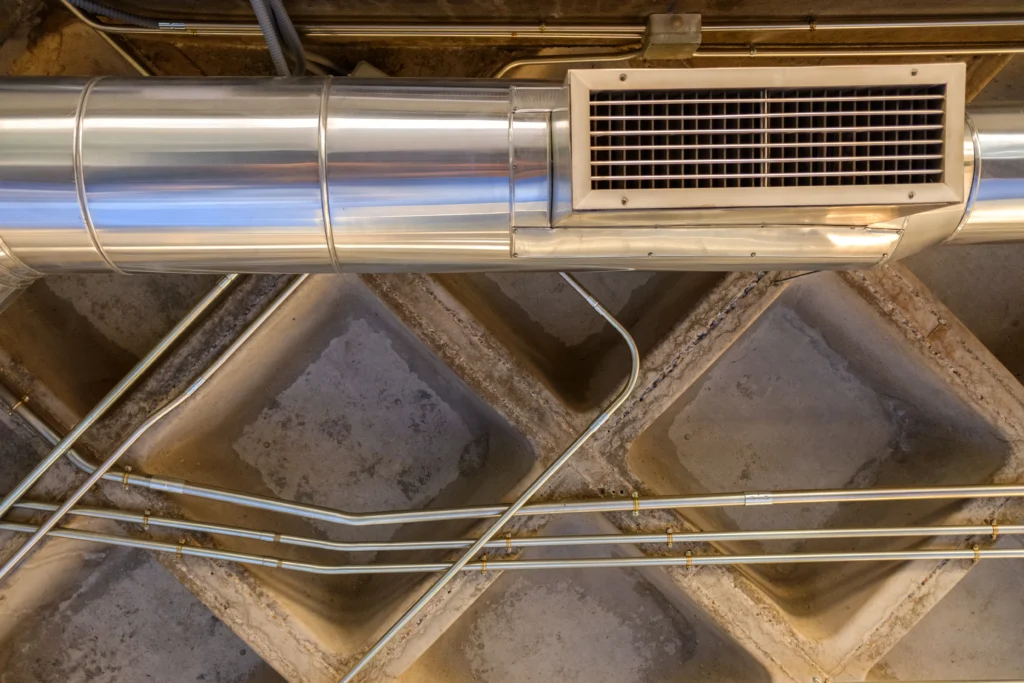
The Air Duct Cleaning Process
Step 1: Inspection and Assessment
Before cleaning begins, professionals inspect the air duct system using cameras or specialized tools to assess dust buildup, mold growth, and blockages. Identifying problem areas helps determine the best cleaning method for the system.
Step 2: Removing Dust and Debris
High-powered vacuums with HEPA filters are used to remove loose dust and dirt from the ductwork. A negative air pressure system creates suction that pulls contaminants out of the ducts, preventing particles from spreading throughout the home.
Step 3: Brushing and Agitation
To dislodge stuck-on debris, rotating brushes or compressed air tools are inserted into the ducts. These tools break up dust, pet dander, and allergens that have settled on the duct walls over time.
Step 4: Sanitization and Mold Prevention
If mold or bacteria are present, a specialized antimicrobial treatment may be applied to disinfect the ductwork. Using an EPA-approved disinfectant ensures safety and prevents regrowth. This step is especially beneficial for homes with past moisture issues.
Step 5: Cleaning HVAC Components
In addition to cleaning the ducts, professionals may also clean air vents, grilles, registers, and sometimes HVAC coils and blower fans. This helps improve airflow and ensures the entire system is free of dust and debris.
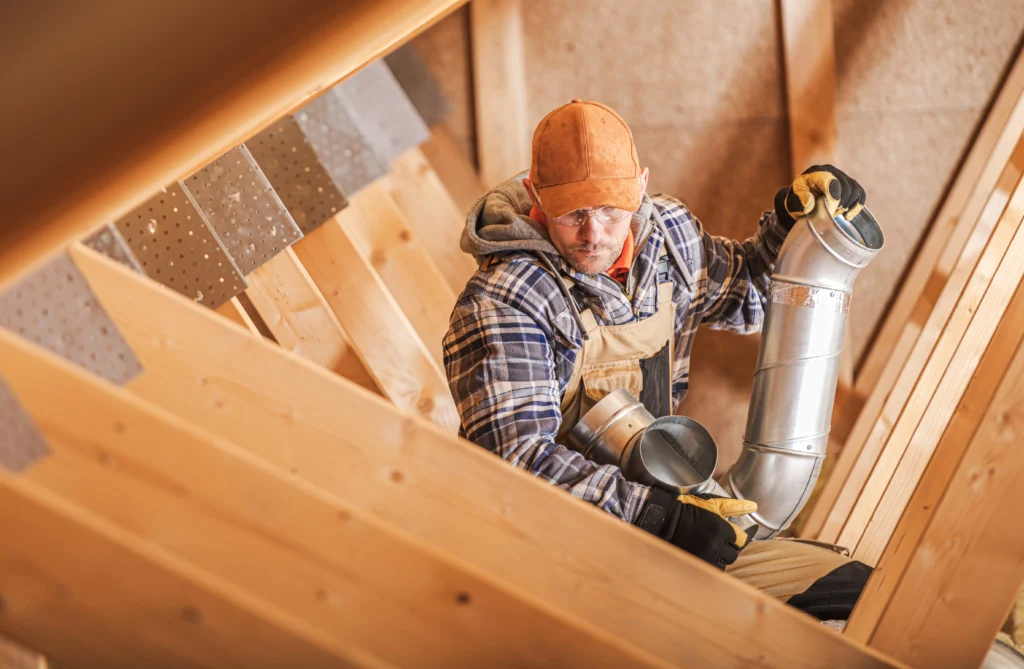
When to Schedule Air Duct Cleaning
The National Air Duct Cleaners Association (NADCA) recommends cleaning air ducts every 3 to 5 years, or sooner if:
- There is visible mold or musty odors coming from vents.
- The home has undergone recent renovations or construction.
- There is an increase in allergy symptoms among occupants.
- The HVAC system has not been cleaned in several years.
Benefits of Professional Air Duct Cleaning
Hiring a professional air duct cleaning service ensures a thorough and safe cleaning process. Professionals use industry-grade equipment to remove contaminants effectively, preventing unnecessary damage to ductwork.
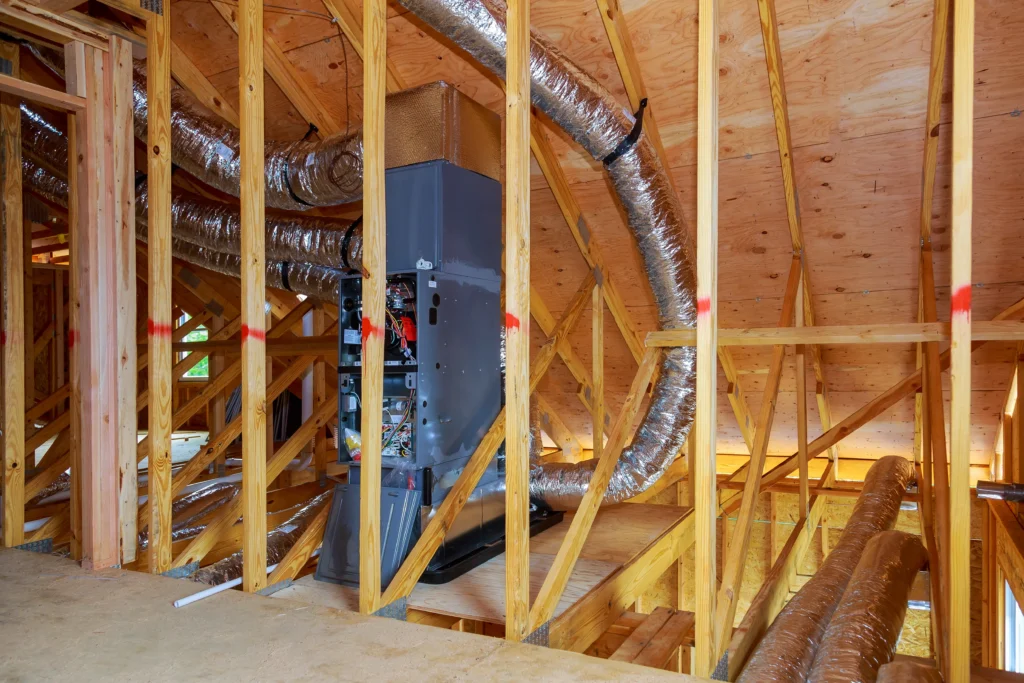
Preventing Air Duct Contamination
To maintain clean air ducts and improve HVAC efficiency:
- Replace air filters every 2-3 months to prevent dust buildup.
- Keep humidity levels below 50% to reduce mold growth.
- Ensure proper ventilation in high-moisture areas like bathrooms and basements.
- Schedule routine HVAC maintenance to check for leaks or debris buildup.
Useful Resources
- Learn more about air duct cleaning standards from the EPA.
- Find certified air duct cleaning professionals through NADCA.
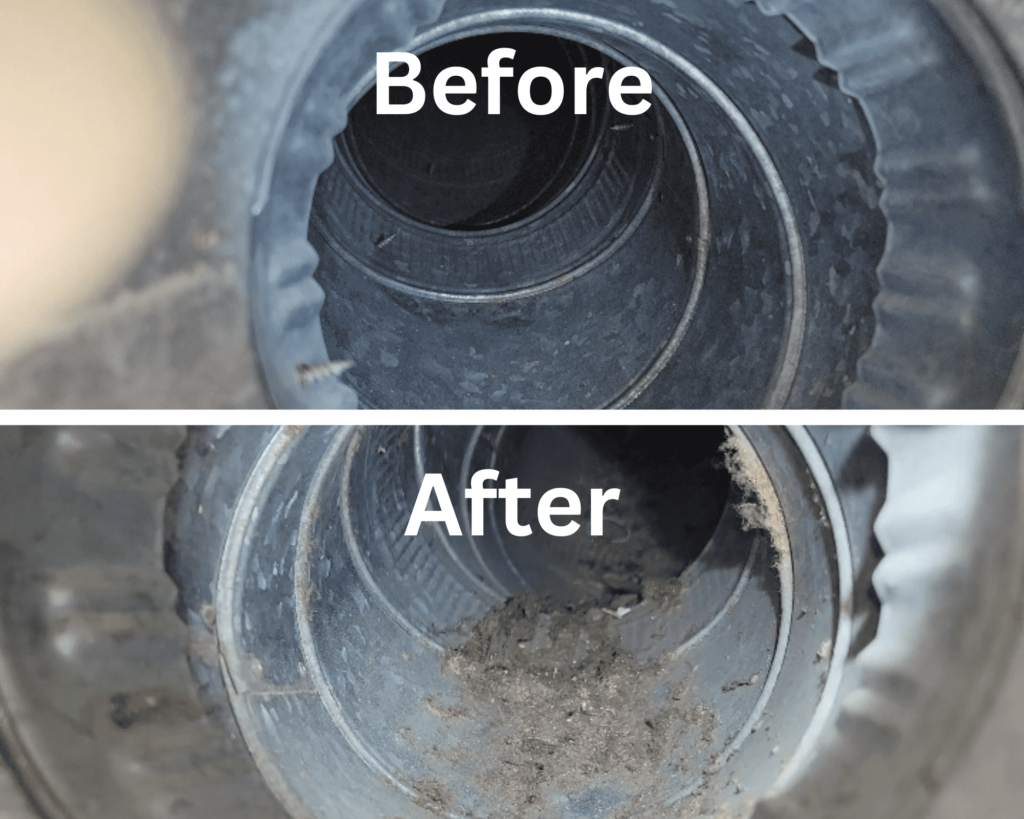
Conclusion
Air duct cleaning plays a vital role in maintaining a healthy indoor environment and optimizing HVAC performance. The process involves inspection, dust removal, brushing, and sanitization to eliminate contaminants. Regular maintenance and professional cleanings help ensure cleaner air, lower energy costs, and a more efficient HVAC system.
